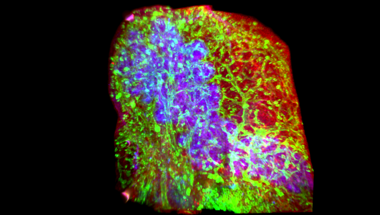
Dr Mahesh Sangrithi
Clinical Senior Lecturer
- Welcome Trust Clinical Career Development Fellow
Biography
Dr Mahesh Sangrithi is a Wellcome Trust Clinical Career Development Fellow in the Centre for Stem Cell Research & Regenerative Medicine, School of Basic & Medical Biosciences.
Dr Mahesh Sangrithi is an academic clinician-scientist and Consultant in Obstetrics and Gynaecology. He graduated from St. George’s Hospital Medical School, London, in 1999. He obtained his PhD from the University of Cambridge at the MRC Cancer Cell Unit/CRC Department of Oncology under the supervision of Professor Ashok Venkitaraman. Dr Sangrithi went on to specialise in Obstetrics and Gynaecology at University College London, during which he also undertook postdoctoral research training as an NIHR Clinical Lecturer the Division of Stem Cells and Genetics at the National Institute of Medical Research London, where he worked on the functional effects of sex chromosomes in germ cell development, genomewide reprogramming and early embryo development.
Dr Sangrithi gained accreditation as a sub-specialist in Reproductive Medicine & Surgery, and was appointed as Consultant Gynaecologist at Addenbrooke’s Hospital in 2015. He subsequently took up an appointment in Singapore having been awarded a NMRC Clinician Scientist Investigator award, enabling him to set up his independent research group at SingHealth/Duke-NUS Graduate Medical School. Dr Sangrithi recently relocated to the United Kingdom having received a Wellcome Trust Clinical Career Development Fellowship and has relocated to London as a group leader at the Centre for Stem Cells & Regenerative Medicine at King's.
Dr Sangrithi's group researches the effects of the sex chromosomes in germ cell development and causes for infertility. The transcriptional identity of male and female germ cells is established during early embryonic development and arises from an interplay of cell autonomous and extrinsic cues from supporting somatic cells. A mismatch between the complement of sex chromosomes and phenotypic sex leads to infertility – i.e. observed in Klinefelter syndrome (males with an extra X; XXY) and Turner syndrome (females with X monosomy (XO). The group focuses on germ cell sexual dimorphism in the following areas:
- Transcription factor sub-networks in germ cells.
- Sex chromosome effects in germ cells – determinants of germ cell transcriptional identity
- High-resolution developmental maps of oogenesis and spermatogenesis using single-cell approaches
Please contact Dr Sangrithi if you are interested in PhD/postdoctoral opportunities. Any vacant posts within the Centre for Stem Cells & Regenerative Medicine are advertised on the King's HireWire website.
Research

Reproductive biology and stem cells Lab
Our research focusses on sex chromosome functions in the germ line, and their role in infertility.

From Developmental Biology to Regenerative Medicine
Understanding organ development and tissue regeneration provides a framework for elucidating disease mechanisms as well as for developing new therapeutics.
Events

Mapping the development and regeneration of reproductive tissues: Dr Roser Vento Tormo
Seminar with Dr Roser Vento Tormo
Please note: this event has passed.
Research

Reproductive biology and stem cells Lab
Our research focusses on sex chromosome functions in the germ line, and their role in infertility.

From Developmental Biology to Regenerative Medicine
Understanding organ development and tissue regeneration provides a framework for elucidating disease mechanisms as well as for developing new therapeutics.
Events

Mapping the development and regeneration of reproductive tissues: Dr Roser Vento Tormo
Seminar with Dr Roser Vento Tormo
Please note: this event has passed.
